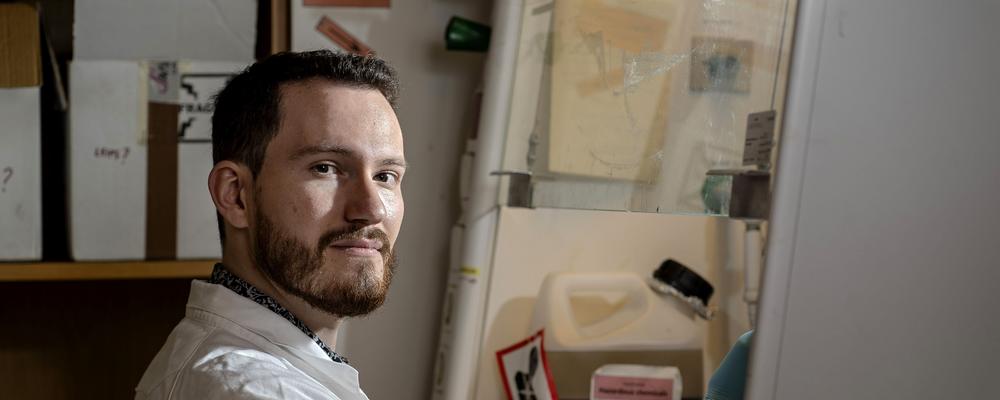Carbohydrates are complex, difficult to study and are involved in most biological processes. They are the compound sugars known as glycans, commonly referred to as carbohydrates.
These tiny biomolecules have been a great passion and research interest in recent years for associate senior lecturer Daniel Bojar. Since 2021 he has headed a research group at the Wallenberg Centre for Molecular and Translational Medicine at the University of Gothenburg.
“Glycans, which exist throughout the body, are involved in a variety of areas and processes, from the communication of cells and the development of diseases to immunity and the formation of antibodies,” he says. “But we do not fully understand what they do and how, and we lack good methods for effectively studying them. I want to increase our understanding and drive home the message of how important these glycans are. I hope this can contribute to better and more individualised medicines and treatments.”
Increasing understanding of diseases
A major focus of the research team is finding methods to study glycans using deep learning, a form of artificial intelligence. In recent years, Bojar and his colleagues have published numerous high-profile studies. These have increased our understanding of the immune system and how viruses spread from animals to humans. One of the latest projects aims to develop the ability to detect and defend against new viruses more easily, something that has become frighteningly topical in light of the coronavirus pandemic.
“We hope to open up entirely new opportunities for research into glycans, which can provide greater insights into disease, contagion, infections and antibodies. This can have implications for everything from cancer research and organ donations to knowledge of how influenza spreads.”
Methods based on deep learning are an important key to success.
“Currently, we are focusing on finding a new AI model to automate analyses of glycans, because current manual processes take too long. With automated analyses, we can broaden research and efficiently analyse hundreds of samples at once.”
High-profile research
Daniel Bojar’s research has resounded both within and outside the research community, and recently Bojar was included in Forbes magazine’s list of young scientists who are changing the world, 30 Under 30.
“That is really terrific, especially because it opens doors and places the spotlight on the research.”
As a child, Bojar wanted to be an inventor, but when he started school, he realized the research world held the most attraction for him.
I am driven by curiosity and a desire to understand how things are interrelated, and I have always had a thirst for new knowledge. Biology fascinates me because it is so clear that everything is a big puzzle, and we know less than we would like to think we do!
Research environments that inspire
Research on glycans is a small field, but he points out that the University of Gothenburg has several talented researchers examining it. Bojar sees great benefits in being part of the Wallenberg Centre for Molecular and Translational Medicine, because it provides the opportunity to meet and be inspired by different research environments.
“I enjoy being at the University of Gothenburg very much and think it is great to head a group where everyone has different experiences and expertise.”
Focusing on the benefits of the research
Working on research can require patience and involve long periods when things stand still. Once a breakthrough comes and things fall into place, Daniel Bojar flourishes.
“It is amazing when we make a discovery and receive exciting data from a model. But above all, anticipating the next step is the big motivator. The sense that what we discover can actually be used and make a difference.”
